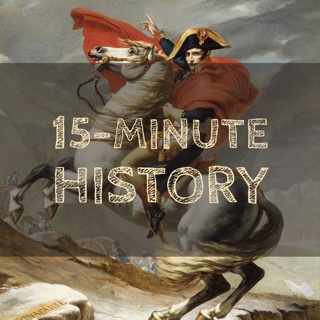
C.S. Lewis | A Discussion on the Reluctant Apologist
Join us as we discuss Clive Staples Lewis, his life, his writing, and his lasting legacy.
24 Jan 202237min

C.S. Lewis | Reluctant Apologist
Three men walked along a tree-covered path in the early hours of a Sunday morning. Their conversation mixed with the sound of water flowing over rocks in a small river and the crunch of leaves beneath their booted feet. The words they spoke were steeped in deep knowledge of literature and philosophy as they wrestled with the nature of the universe and man’s place in it. The two Englishmen believed that God had created the world and sent His Son to die for mankind’s sins, while their Irish friend was a skeptic who did not believe in anything beyond this life. Then, as their talk turned to myths and the great stories of humanity’s past, a strong autumn wind came up suddenly and sent leaves scattering across the path. The sheer power of the gust filled their hearts with wonder, and they stopped and stood in its midst, as one of them put it, “appreciating the ecstasy of such a moment.” Join us as we teach you about Clive Staples Lewis, his life, his writing, and his lasting legacy.
17 Jan 202214min

Bartolome de Las Casas | A Discussion on a Man Before His Time
Join us and our special guest Father Dominic Verner, Ph.D. candidate, for a discussion on the life and times of Bartolome de Las Casas and his effect on world history.
10 Jan 202245min

Bartolome de Las Casas | A Man Before His Time
Bartolomé de Las Casas was born in Spain in 1484 into a wealthy merchant family. At the age of eighteen, he emigrated with his father Pedro to the new Spanish colony on Hispaniola (the island that is today divided between the nations of Haiti and the Dominican Republic). Pedro de Las Casas obtained a large farm, or hacienda, from the governor along with dozens of slaves. As landowners, the family participated in terrible slave raids across the West Indies to bring thousands of poor souls to the colonies. Bartolomé was disturbed by what he saw, and the horrors set him on a path toward vocal opposition to his government’s inhuman policies toward Native Americans. Join us as we teach you about Bartolomé de Las Casas and his lifelong pursuit of ending the mistreatment and enslavement of indigenous peoples.
10 Jan 202217min

The Christmas of 1914 | The Most Extraordinary Christmas Day
Five months into the First World War, as the European powers were hurling their young men into barbed wire and machine-gun fire, Pope Benedict XV issued a plea "that the guns may fall silent at least upon the night the angels sang." The governments of the warring nations ignored the pontiff's call, and generals ordered their men to continue to fight while the rest of the Christian world celebrated the birth of Jesus. But as midnight approached on Christmas Eve in multiple sectors along the Western and Eastern fronts, officers spoke in hushed tones in English, German, French, and Russian about giving the soldiers under their command a break from the terrors of war. Artillery that had fired constantly since the late summer fell silent, and when the new day began, all was quiet. Join us as we teach you about the Christmas Truce of 1914. From all of us here at 15-Minute History, we wish you a very Merry Christmas and Happy Holidays. See you in 2022!
20 Dec 20219min

Jordan Peterson | A Discussion on Order and Chaos
Join us as we discuss Jordan Peterson, his influences, his writings, and his effect on society today.
13 Dec 202121min

Special Discussion | Three Historical Figures
Join Jon and Dan as they each discuss three historical figures and their effect on world history.
6 Dec 202152min

Jordan Peterson | Order and Chaos
Join us as we teach you about Jordan Peterson, the effect of his philosophy on today's society, and the means by which he affects change (for the good or bad) across the globe.
29 Nov 202113min




















